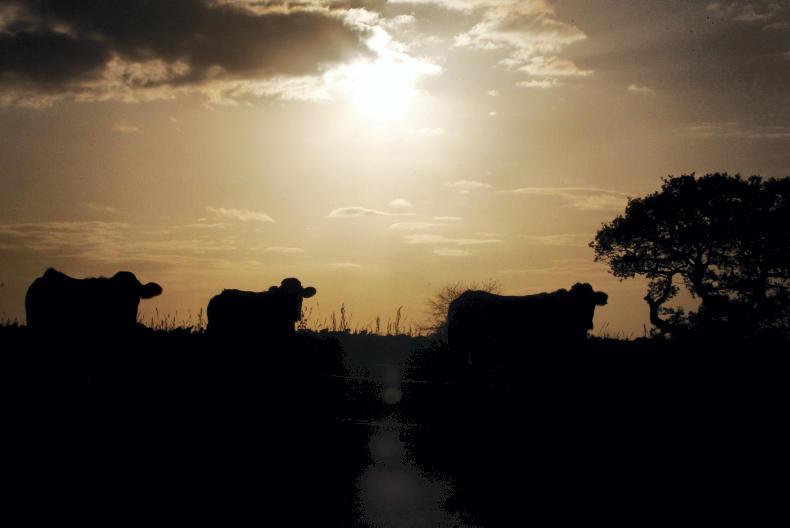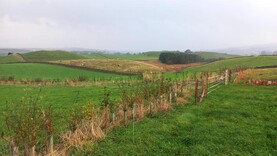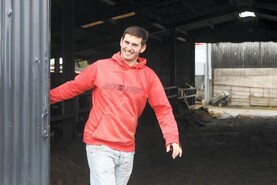The reporting of a leaked email in the Daily Mail saying that the food sector isn't critical to the UK economy and that agriculture certainly wasn't will give UK farmers cause for concern.
The comments were attributed to Dr Tim Leunig, who is an economic adviser to the Chancellor of the Exchequer (finance minister) Rishi Sunak.
They also follow the DEFRA minister who is responsible for agriculture George Eustace failing to rule out the UK accepting hormone-treated beef or chlorine-washed chicken in a future trade deal with the USA.
Historic UK support for farming
Prior to the UK joining the EU in 1973, British governments had a policy of strongly supporting British farmers. This was shaped by the impact of two major wars in the 20th century that led to food rationing and a dependence on high output from British farms to offset the access to imports because of war.
However, in more recent times, UK governments tended to be hostile to the CAP and support for agriculture in general. Current agriculture policy is based on continuing present support structures until 2022 as a new UK agriculture policy is developed.
Cheap food policy
It has been a widely held view among many advocates for Brexit that by leaving the EU, the UK would have access to cheaper food, with imports from outside the EU.
In March last year, ahead of the original UK departure date, the government published its intended tariff structure. It made provision for 230,000t of beef to enter the UK at zero tariffs, open to all countries.
Insight to UK thinking
While this is a leaked email and the government pointed out that it wasn't government policy, it nevertheless gives an insight to the thinking at the heart of government.
Singapore is regularly mentioned as a model the UK might choose outside the EU. They are dependent on imports for food and a low-tax economy with minimal government involvement in provision of services.
The thought of the UK being a low-tax, lightly regulated economy on the doorstep of the EU causes concern in Brussels - hence the emphasis by the EU that a comprehensive trade deal similar to Canada is dependent on close alignment of standards.
That negotiation kicks off on Monday afternoon in Brussels and no doubt Michel Barnier and his team will have taken note of the thinking on agriculture and its lack of strategic importance as further evidence of UK divergence from the EU.
Read more
EU-UK trade talks start on Monday
No new laws on import standards
The reporting of a leaked email in the Daily Mail saying that the food sector isn't critical to the UK economy and that agriculture certainly wasn't will give UK farmers cause for concern.
The comments were attributed to Dr Tim Leunig, who is an economic adviser to the Chancellor of the Exchequer (finance minister) Rishi Sunak.
They also follow the DEFRA minister who is responsible for agriculture George Eustace failing to rule out the UK accepting hormone-treated beef or chlorine-washed chicken in a future trade deal with the USA.
Historic UK support for farming
Prior to the UK joining the EU in 1973, British governments had a policy of strongly supporting British farmers. This was shaped by the impact of two major wars in the 20th century that led to food rationing and a dependence on high output from British farms to offset the access to imports because of war.
However, in more recent times, UK governments tended to be hostile to the CAP and support for agriculture in general. Current agriculture policy is based on continuing present support structures until 2022 as a new UK agriculture policy is developed.
Cheap food policy
It has been a widely held view among many advocates for Brexit that by leaving the EU, the UK would have access to cheaper food, with imports from outside the EU.
In March last year, ahead of the original UK departure date, the government published its intended tariff structure. It made provision for 230,000t of beef to enter the UK at zero tariffs, open to all countries.
Insight to UK thinking
While this is a leaked email and the government pointed out that it wasn't government policy, it nevertheless gives an insight to the thinking at the heart of government.
Singapore is regularly mentioned as a model the UK might choose outside the EU. They are dependent on imports for food and a low-tax economy with minimal government involvement in provision of services.
The thought of the UK being a low-tax, lightly regulated economy on the doorstep of the EU causes concern in Brussels - hence the emphasis by the EU that a comprehensive trade deal similar to Canada is dependent on close alignment of standards.
That negotiation kicks off on Monday afternoon in Brussels and no doubt Michel Barnier and his team will have taken note of the thinking on agriculture and its lack of strategic importance as further evidence of UK divergence from the EU.
Read more
EU-UK trade talks start on Monday
No new laws on import standards






 This is a subscriber-only article
This is a subscriber-only article










SHARING OPTIONS: